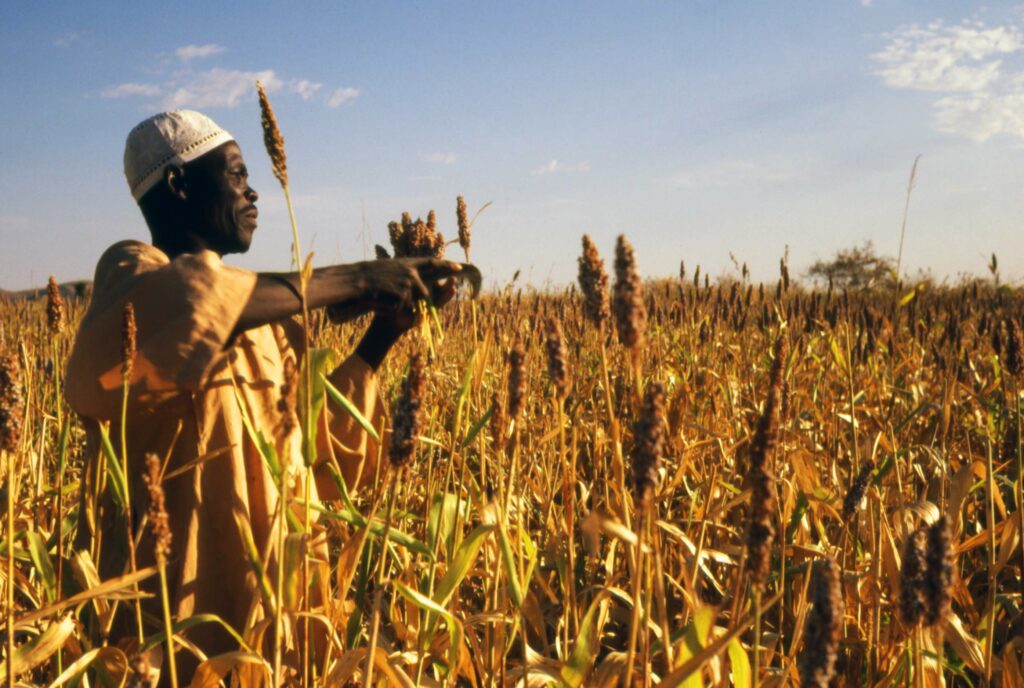The impact of the Ukraine – Russia war on global food security.

Since the outset of the Covid-19 pandemic we have seen that one of the major fallouts of lockdowns has been the disturbance of global supply chains. Every economic sector on the planet has been impacted by this unprecedented stop in the movement of goods during 2020. As a result there has been a major delay and shortage of materials globally which we have not yet recovered from. One major supply chain is the global food supply, which as a result of the pandemic has seen a recession in progress. Many researches claim that much of the work done over the last decade in alleviating food insecurity and poverty has been undone and is now in a downward trend as a result. You can read more about food security and Covid-19 in the article by (Mardones et al, 2020)
In this series of blogs I will be looking at how further development globally, from climate change to international geopolitics are having major impacts on global food security and how in my opinion it seems we are heading towards more food insecurity. Which will as usual, impact the poorest and most vulnerable groups on the planet predominantly. I hope to cover major world events and also educate and give my opinions on two countries which I will be studying for my masters thesis. Those being Cambodia and Bangladesh which are two countries that are highly suceptible to the effects of climate change and the majority of their poor and impoverished who are subsistence farmers and are likely to be those worse impacted by negative trends in global food security.
Today we are going to look at the impact the Russian invasion of Ukraine has had on global wheat supplies. Ukraine and Russia together account for nearly a third of global supplies in wheat, sunflower and rapeseed oil. In addition Russia and Belarus are major global exporters of potash which is crucial for fertilizing in the middle east and developing countries in the middle east. Ukraine is reported to have 22 million tonnes of Wheat in storage but the Russian blockade of Ukrainian ports on the Black Sea has reduced the export of these supplies which are predominantly needed by extremly poor countries in the world. Their food security is high sensitive and any disruption to their supplies can quickly lead to food shortages. (Euronews, 2022).
The situation has become so precarious that the united Nations secretary general, Antonio Guterres has pleaded for Russia to negotiate a lifting of the blockade and trying to mitigate a deal by getting western nations to drop some trade sanctions which are crucial to global food supply. Even UN food Chief David Beasley has called out Russian president Vladimir Putin asking him if he has a heart and if he does to consider the impact preventing wheat exports is having on the most vulnerable and desitute countries on the planet (Skynews, 2022).
From my reviewing of these recent events this seems like a foreshadowing of the possible future that awaits the world. In the event we don’t drastically curb our green house gas emissions countries are likely to become more protective of their food supplies and this trend of growing food poverty will increase. There seem to be growing trends of the breakdown of globalization and democratic backsliding globally, what this means for global food security in my eyes is a new dynamic and organisation of geo politics. One where countries are focused on regional spheres and conflicts like we are seeing in Ukraine where one dominant power lords over the weaker neighbouring countries creating a system of dependence. Under this scenario it seems likely that international efforts to reduce global food poverty will be stymied. The most vulnerable and underdeveloped countries will regress and the progress made over the last two decades will be replaced with something of a clientelistic system of regionalism and protectionism which will lead to the poorest being left to bare the brunt of the negative impacts. I think now more than ever an effort has to be made to increase international cooperation and investment in programs and innitatives that amplify the voices of the meek, impoverished and subdued. Only by involving those most impacted in the discussion and decision making process can we make sure they eventually have the power and tools necessary to be self reliant and less suceptible to the fallout of the vainglorious decisions made by despot mad men of richer countries.
Sources:
References
Al Jazeera, 2022. Food crisis fears: War drives up cost of wheat globally. Available at: <https://youtu.be/hfQKEI5FhEc> [Accessed 20 May 2022].
Limb, L. and Nichols, M., 2022. Ukraine invasion could trigger global food crisis, UN chief warns. [online] euronews.com. Available at: <https://www.euronews.com/green/2022/05/19/ukraine-invasion-could-trigger-global-food-crisis-un-chief-warns> [Accessed 20 May 2022].
Mardones, F., Rich, K., Boden, L., Moreno-Switt, A., Caipo, M., Zimin-Veselkoff, N., Alateeqi, A. and Baltenweck, I., 2020. The COVID-19 Pandemic and Global Food Security. Frontiers in Veterinary Science, 7.
Mauldin, W., 2022. U.N. Seeks to Ease Russian Blockade of Ukraine Grain Shipping to Avert Food Shortages. [online] WallstreetJournal. Available at: <https://www.wsj.com/articles/u-n-seeks-to-ease-russian-blockade-of-ukraine-grain-shipping-to-avert-food-shortages-11652717161> [Accessed 20 May 2022].
Swinnen, J. and McDermott, J., 2020. COVID-19 and global food security. [online] Available at: <https://www.ifpri.org/publication/covid-19-and-global-food-security> [Accessed 20 May 2022].
Whiteside, P., 2022. Ukraine war: How Putin’s invasion is causing a worldwide food crisis – and what can be done. [online] Sky News. Available at: <https://news.sky.com/story/ukraine-war-how-putins-invasion-is-causing-a-worldwide-food-crisis-and-what-can-be-done-12616824> [Accessed 20 May 2022].